Illustrations by Lo G. All photos by Stephanie Lee for RICE Media unless otherwise stated.
Caring for a child is an ongoing challenge in selflessness and perseverance. This is especially so when a child is perceived as difficult to love—with no fault of their own.
Tracie Pang, the artistic director of Singaporean theatre company Pangdemonium, was deeply moved when she first read the script for Falling. It was written by American playwright Deanna Jent in 2011, basing its story on her experience raising her son.
In an autistic child’s world, internal thoughts and external stimuli are loud. Expressing themselves and connecting with the world is difficult. Social service agencies like Rainbow Centre, which runs three special education schools, have catered to a growing number of Singaporean children who fall on the wide spectrum of autism.
While mainstream schools still have a focus on academics, special education schools focus on skills that build independence, vocational training, community exposure and family services that are aimed at improving students’ quality of life.
“No two autistic people are the same,” Tracie notes. “Some are high functioning, others have high support needs. Then there are nonverbal individuals, along with some who experience violent meltdowns.”
Falling revolves around the perspective of caregivers who face the tough parental task of caring for an autistic child.
The play, in Tracie’s words, is about “how strong they need to be on a daily basis in order to keep moving forward.”
In March 2024, Pangdemonium will be staging a new adaptation of Falling after a successful run in 2016. Tracie remains determined about the play’s potent message of social inclusivity reaching a wider audience.
She knows the impact of awareness. She’s seen people becoming less quick to judge the parents of a child experiencing a meltdown, who might or might not have special needs. She’s also observed more high-functioning autistic individuals feeling comfortable disclosing their place on the spectrum.
At the same time, she also thinks about the caregivers. How do parents bear the weight of being a bridge for their autistic child to the outside world without collapsing? All of this has motivated her to work on a new adaptation.
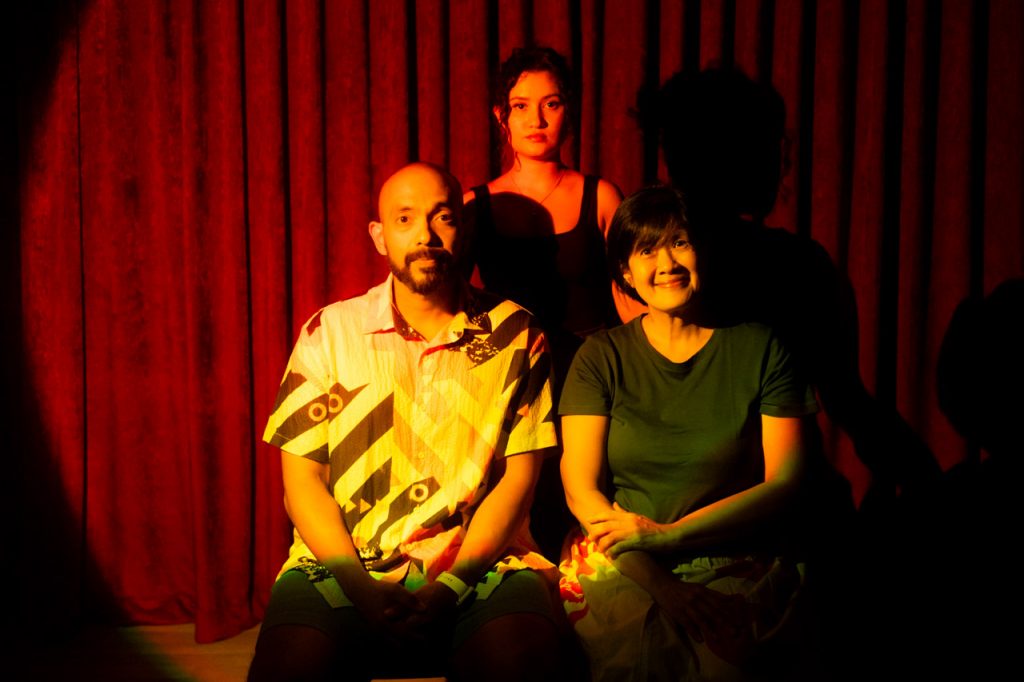
The actors and directors of Falling arrive at Rainbow Centre Yishun Park School at 8:30 AM on a Wednesday. They’re set to follow the centre’s students, educators and caregivers around its grounds—from the classroom to the canteen and even along the swimming pool.
With gentle smiles and, at times, from a respectful distance, these performers observe this special community in order to grasp the stories that the cast of Falling will strive to tell.
Adds actress Rebecca Ashley Dass: “This is their safe space, but they’ve accepted us willingly.”
Prepared for the Unexpected
Although no two autistic individuals are alike—they differ in the severity of autism and intellectual ability—they’re tied in the general struggle of managing social interaction, communication and flexibility. It’s a disability that affects a person’s way of processing language and information coming in from the five senses.
Because of this, caregivers and educators ensure that they stay as calm as possible in a predictable environment with routines and visual support. “The educators advised us to remain chilled out because these students can sense unease and nervousness,” said Dwayne Lau, who plays Josh’s father Bill.
In its classrooms—where recorded sounds of nature play over speakers to add a dimension of calm—some teenage students are taught how to buy food. They are then brought to the school canteen where they put what they learn into practice.
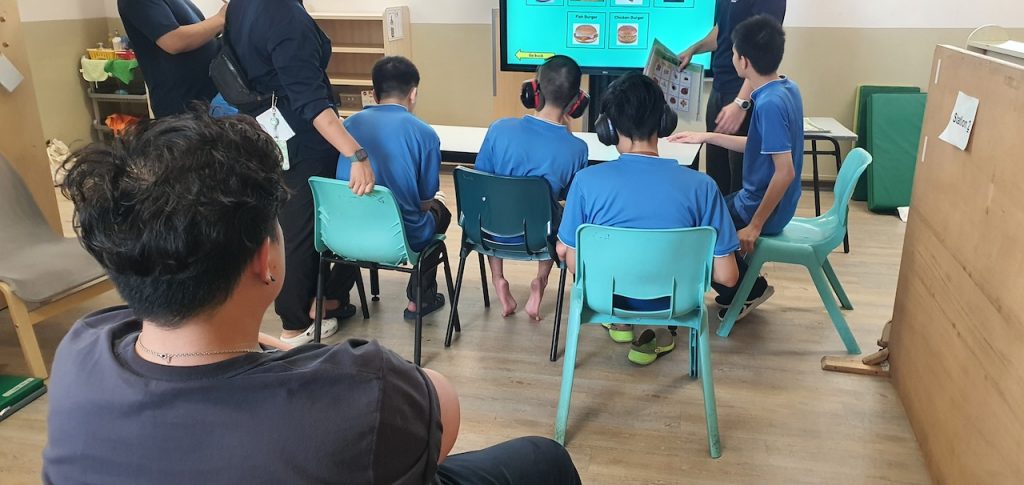
During these lessons, students would frequently stand up and wander off, which surprised the Pangdemonium actors. It also showcased these educators’ agility and attentiveness to manage distractions.
Rebecca plays Lisa, the frustrated sister of Falling’s main character, Josh. She takes note of the careful and meticulous routines the teachers plan for their students.
“This is the most present I’ve been in a while because [the environment] is unpredictable.”
She’s learned that “you have to be ready for anything.” Tracie adds: “Teachers and parents need to be fully switched on all the time, which can be exhausting.”
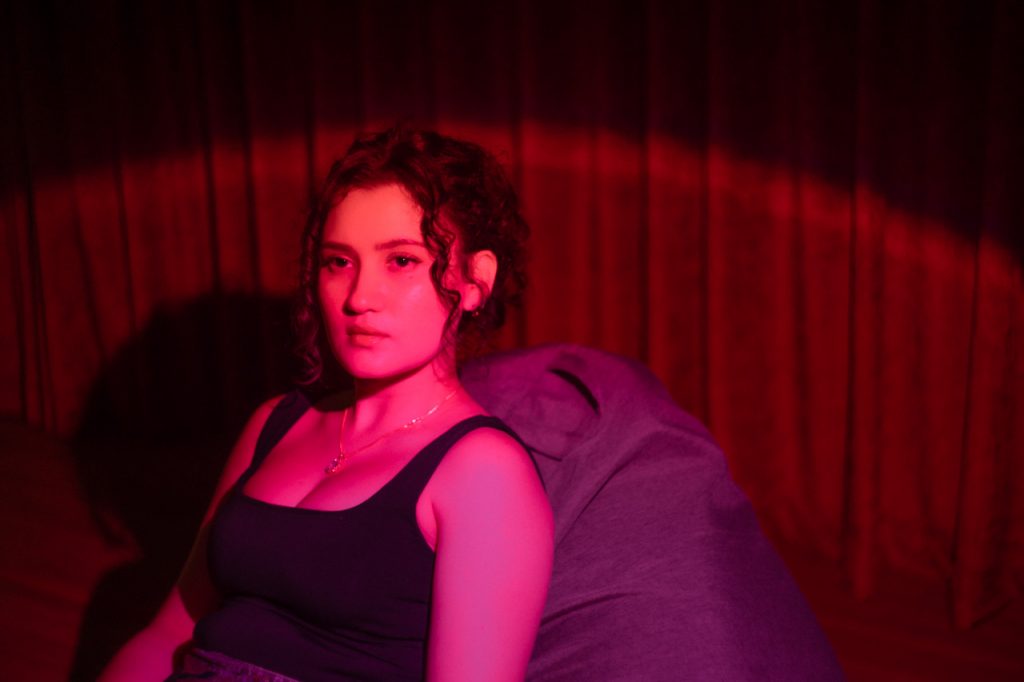
Rebecca recounts that the class she observed was filled with noises that amounted to an erratic cacophony. As the lesson progressed, however, she began to realise that the special educators were all too familiar with the sounds each student made. Some non-verbal students convey their various thoughts and feelings through specific noises that their teachers recognise.
Some of them even know the exact sounds that could indicate an ensuing tantrum or meltdown. Rebecca remained at a distance, although she got to interact with students when it was deemed they were ready to socialise. “One of the students offered me a cracker,” Rebecca tells me with glee.
Dwayne adds how he practised being observant of each student’s well-being before striking up a conversation with them. “One child took hold of my hand during his walk,” he notes.
“Educators would talk like adults to these students even though they were babbling. I learned a lot about how to befriend and communicate with individuals with different levels of autism. Today has made me think deeply about how we can support these caregivers and how we can help them take care of their children.”
Autism in Singapore
Research has shown that a variety of conditions affecting brain development—which may occur before, during or after birth—can lead to autism, although science currently does not have any concrete answers. Autism is not a phase but a lifelong condition, but its symptoms can be mitigated through timely intervention.
There’s research that vouches for significant improvement when intervention is implemented at a young age, which is why organisations like Rainbow Centre provide structured intervention and training.
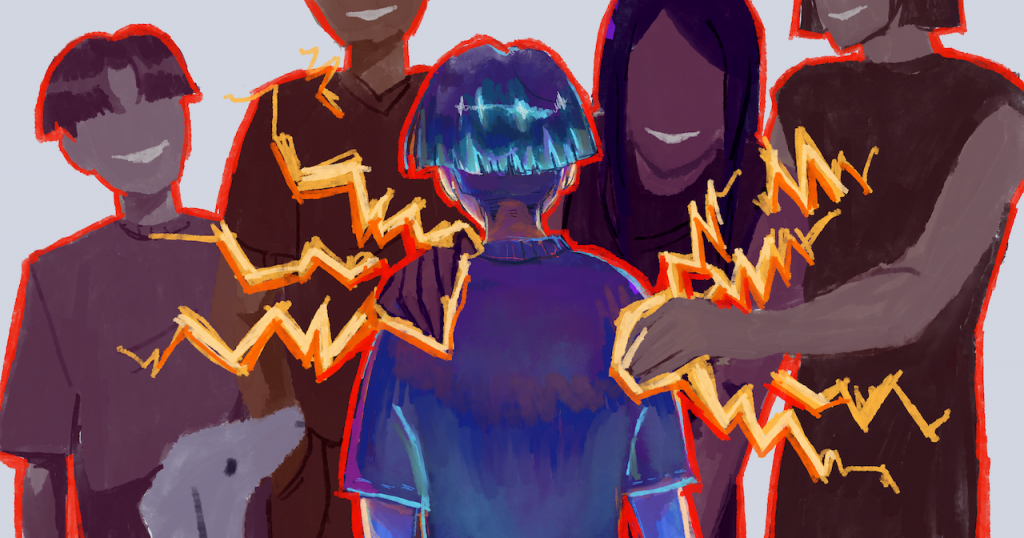
This was also the impetus for the Autism Enabling Masterplan, which provides a directional roadmap for Singapore’s key autism service providers, as they enable and empower persons on the autism spectrum to live quality lives and realise their full potential.
In 2014, approximately 4,400 children received diagnoses of developmental issues, marking a significant increase from 2,500 children in 2010. By 2016, it was estimated that one in 150 children in Singapore fell on the autism spectrum, surpassing the global average of one in 160.
Despite advancements in national efforts to support individuals with disabilities, services for those with moderate-to-severe needs upon completing formal schooling at the age of 18 remain insufficient.
Known colloquially as the ‘Post-18 Cliff Effect’, caregivers grapple with a lack of viable options, often facing extensive waitlists ranging from one month to five years for day activity centres and a shortage of supported job opportunities.
Soldiering On
Autistic individuals do not outgrow their autism. Many continue to require varying levels of support, even into adulthood.
As their care lies squarely on their parents’ shoulders, especially after they leave school at the age of 18, it begs the question of where caregivers can find more support for their children.
The single biggest worry on every caregiver’s mind: What will happen to their child when they die or can’t care for them any longer?
Feeling lonely, defeated, and shouldering a heavy yoke, it is not uncommon for them to bear dark thoughts.
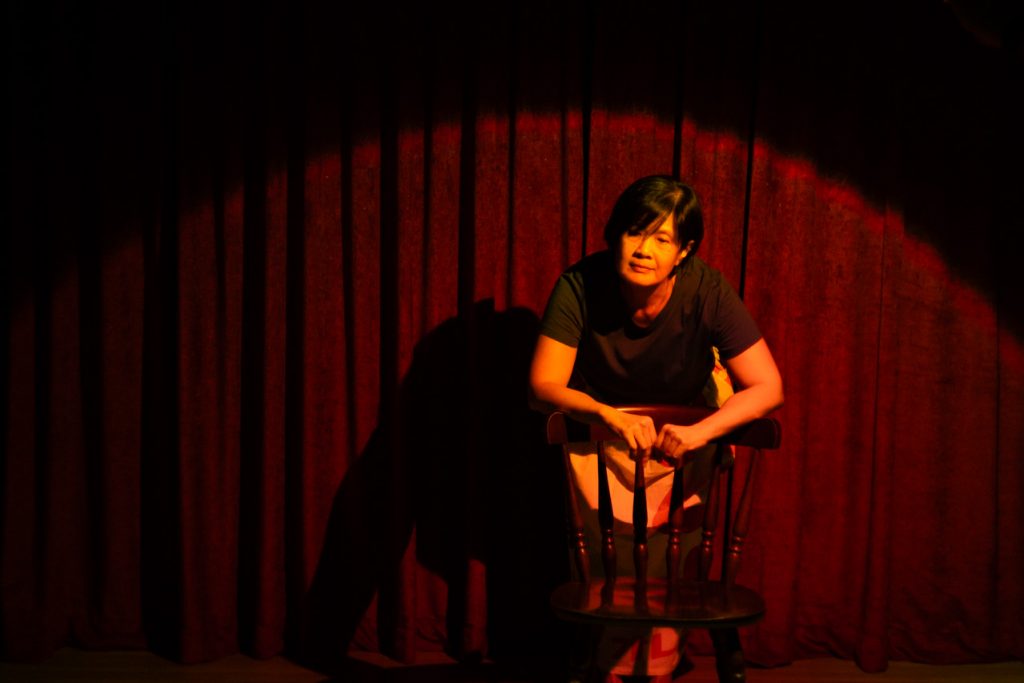
During Pangdemonium’s visit to the Rainbow Centre, the educators invited caregiver Sun Meilan to share with the actors about her life.
Her son, JY, has high support needs and requires close supervision for most of his daily activities. When he was two years old, JY displayed numerous signs of autism, including a lack of speech and joint attention, along with hyperactivity, frequent meltdowns, disruptive behaviour and other sensory issues.
Prior to the diagnosis, Meilan had hoped to return back to work. The caregiving that would entail raising her son, however, required a significant amount of her time and finances. She’s since had to send JY to different therapy treatments, shadowing him closely in all his activities.
The family also had to make major changes, such as restructuring the house to create an autism-friendly environment for JY and hiring a domestic helper to take over the chores and care for the other two children. Keeping JY safe and meaningfully engaged became a round-the-clock responsibility.
I ask Meilan about how she deals with the mental stresses of her caregiving life and if she has had any big regrets.
“There are so many; I don’t even know where to start,” she responds.
After many years of exhausting herself with trying various therapies and approaches, she divulges that she has stopped bashing herself about whether she can do more to help her son.
“I have come to accept JY as he is,” she says. “I’m kinder to myself now.”
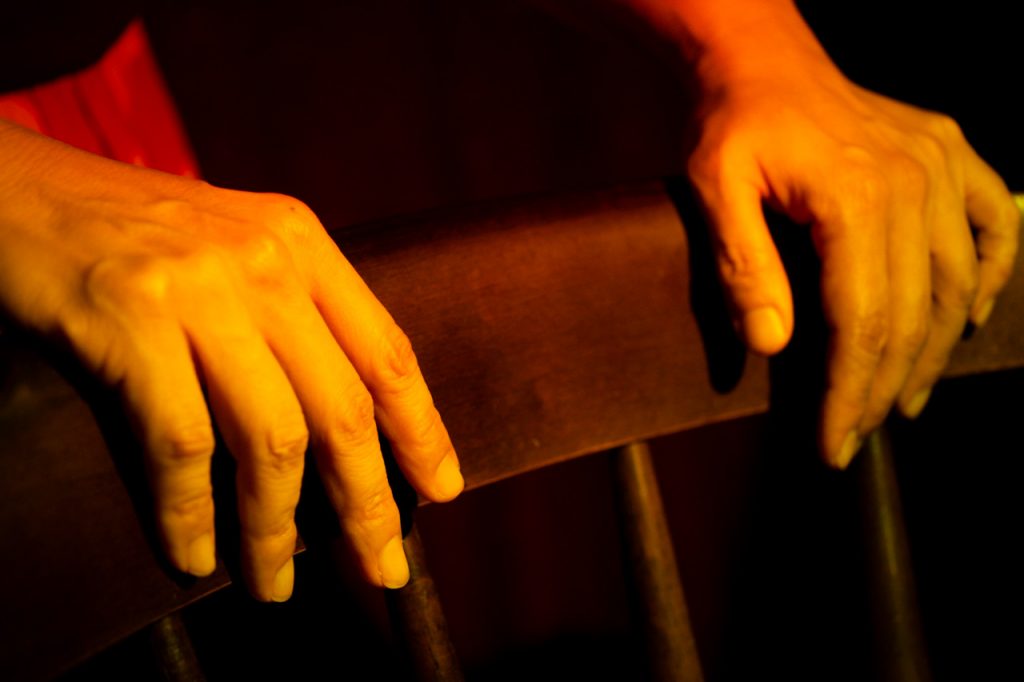
Meilan’s son will turn 17 later this year. He has discovered a passion for sports like rollerblading and rock climbing. As she grows older, Meilan struggles to keep up with JY.
JY’s older siblings have been Meilan’s pillars of strength during the most challenging period of his growing-up years. While she recognises the brutal reality that autistic individuals with high support needs like JY will require long-term supervision and support, she keenly feels that her elder children, who are on the cusp of adulthood, should not be bogged down with responsibilities at this stage when the world is their oyster.
Meilan is also the founder of Friends of ASD, a Facebook community page created as a safe space for fellow caregivers to support one another.
“I have found happiness in other ways. When I have to keep an eye on JY and cannot leave him alone, I have discovered the joy of listening to podcasts. I also find joy in devoting myself to advocacy work and observing nature.”
A Deeper Understanding
Andrew Marko reprises his role as Josh, the autistic son in Falling.
He intends to perform the role as respectfully as his previous portrayal of Josh—to build upon the character that Deanna Jent’s text portrays but mindfully fleshed out within the context of the Singaporean experience.
Falling was originally written in an American setting, but Andrew and Pangdemonium will depict these characters and family dynamics as how they might play out in a Singaporean household.
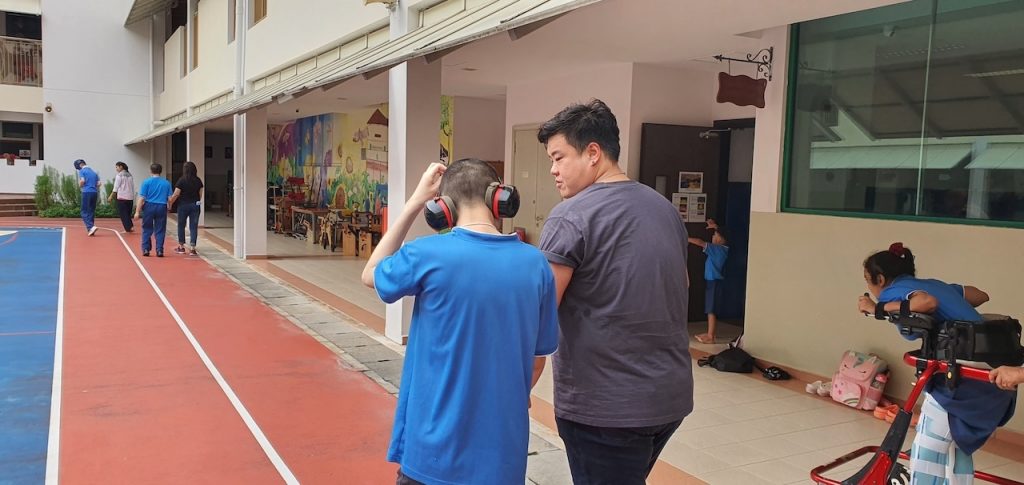
“My character work for Josh has always been to focus on the beats from moment to moment, his inner wants and needs, how they might be in conflict with others, and how he responds to that conflict and desire.”
While Andrew had been closely observing the Rainbow Centre’s students all day to relate to the gamut of thoughts and emotions they were processing, veteran actress Karen Tan was listening attentively to Meilan’s story.
Karen will be portraying Tami, the protagonist of Falling and the mother of Josh and Lisa. Karen disclosed that Meilan’s verbalised emotions evoked her own poignant memories of being a real-life caregiver to her mother, who had been undergoing palliative care, and her father, who suffered from dementia. Both have passed on in recent years.
“This feeling is familiar to me. However, the situations in Falling are created for us. My emotions when I play this role will be familiar but also new because I haven’t cared for an autistic child before. Like dementia patients, autistic patients live in their own worlds.”
The script and roles have already been written. However, Karen shares that she and her fellow actors can now apply their newfound understanding—of autistic individuals and their caregivers—to their ongoing rehearsals.
As she looks at five young men in her class, she tells me: “They are there because someone cares enough for each of them to be put in this good, structured environment.”
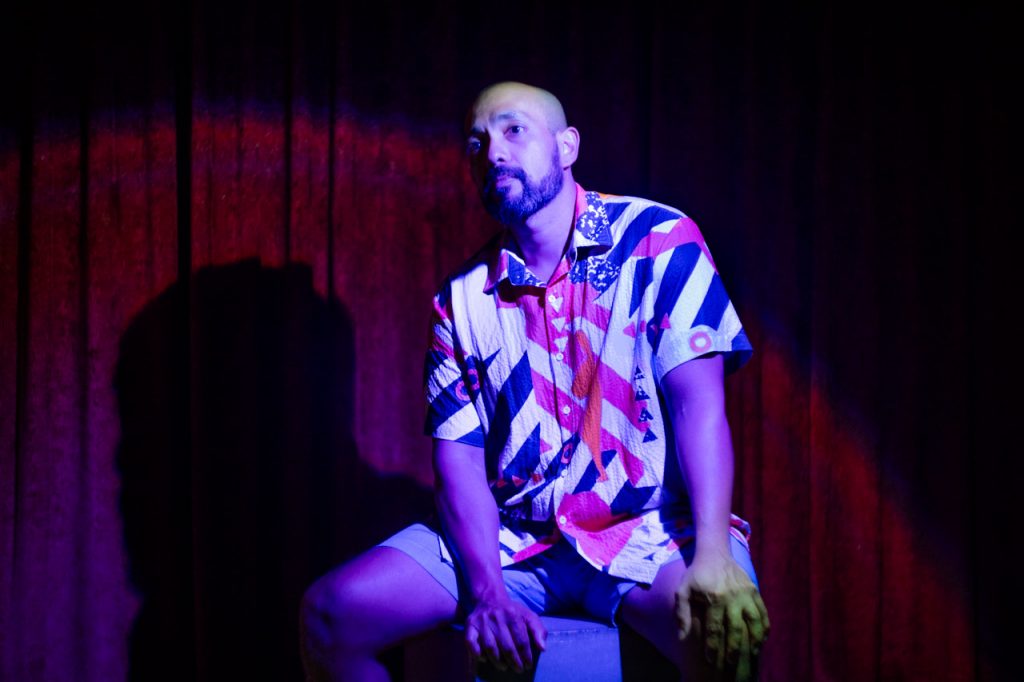
“I now feel strongly for the caregivers,” Dwayne remarks. He looks forward to playing the role of Bill in the 2024 run of Falling, especially because it will be held at the Singtel Waterfront Theatre @ Esplanade, where a three-sided stage will allow Dwayne to hear audience responses from multiple directions.
“Today was definitely very eye-opening, as it shed light on how much these caregivers do. They are very selfless, choosing to love with a lot of patience, and I am very humbled.”
Karen adds: “I don’t want to portray these caregivers in a sorry way that seeks sympathy but to celebrate these people. Seeking help in Singapore can be seen as weak, but I want these caregivers to feel heard.”
“Theatre can soothe in this way because the emotions felt in a scene are real.”






